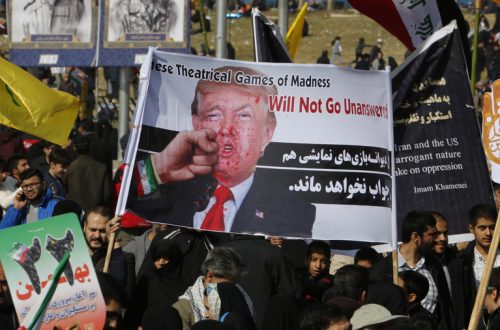I thought readers might be interested in the latest edition of BBC Radio 4 programme The Moral Maze, which focused on the morality of a preemptive strike against Iran. You can listen to it here, at least in the UK. The panellists were regulars: Michael Portillo, Matthew Taylor, Clifford Longley and Melanie Phillips.
The first witness, although himself Iranian, was the most receptive to the idea that a strike might be justified, and indeed perhaps necessary. Mehrdad Khonsari, from London’s Centre for Arabian and Iranian Studies, is highly critical of the current regime, which he described as irrational and immoral, condemning its treatment of the Iranian people, its attempts to destabilise the region, and its failure to cooperate with the international community.
The lowlight of his interrogation by panellists came when Matthew Taylor suggested that perhaps we should launch a preemptive attack on France because it might elect a far right regime. He used similar arguments against the Henry Jackson Society’s Douglas Murray, suggesting that Murray was being unfair in suggesting that some countries’ nuclear weapons/ambitions were more worrying than others.
Melanie Phillips made some pretty good points when interrogating the more war-averse witnesses such as David Rodin, Director of the Oxford Institute for the Ethics & Law of Armed Conflict. Rodin thought the West’s own nuclear weapons, and its expressions of enmity against Iran, were partly to blame for its nuclear ambitions, which could be seen, at least up to a point, as a rational response to its situation. Whether or not there is anything in that argument, it doesn’t seem fully adequate to address the situation of Israel in the light of Iran’s belligerent statements, unless to highlight the fact that Israel might have some rational fears of its own.
When Michael Clark, the director of RUSI, argued that there was no legal basis for war because the threat wasn’t clearly imminent and overwhelming, Phillips pointed out that time might be running out to launch a successful strike. Even Matthew Taylor, at the end of the programme, said he wasn’t convinced by Michael Clark’s arguments, as he couldn’t see how one could be sure that Iran was a threat without it already being too late.
Although I seem to have sided with the more hawkish speakers, I’m sure there are good arguments (moral and military) against attacking Iran in the near future. But I agree with Norman Geras’ conclusion to this piece on the topic:
One should take seriously the view that attacking Iran now would be a folly; one cannot take seriously the opinion of people for whom the possession of nukes by a ‘fanatic, fundamentalist’ regime is to be treated as merely business as usual.


